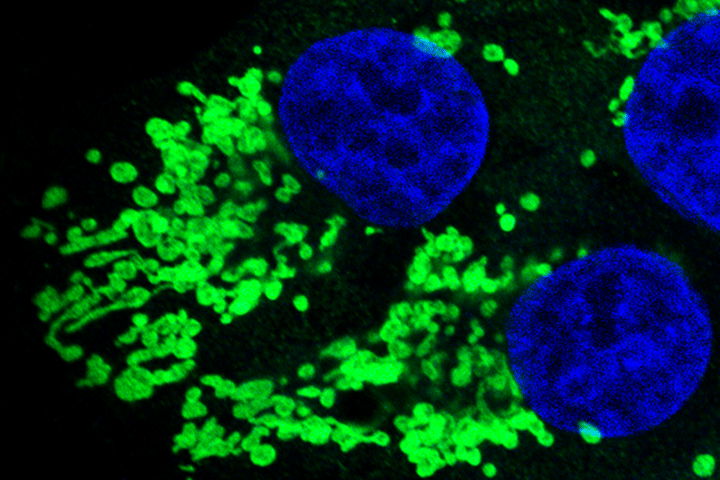Immunotherapy to Attack a Common Pancreatic Cancer Mutation

Daniele Adami, DNA by Thoki Yenn; Flickr
Can researchers find an effective treatment that works on a common cancer mutation, to help shrink pancreatic and other tumors?
A clinical trial is testing whether genetically modifying a patient’s white blood cells can help shrink tumors that carry a particular type of KRAS mutation. These include pancreatic, gastric, gastrointestinal, colon, and rectal cancers.
What Is a KRAS Mutation?
Almost all pancreatic cancers have a KRAS gene mutation. The KRAS gene tells cells when to start and stop dividing; the KRAS mutated gene always tells cells to keep dividing. Many different therapeutic approaches have been tried to slow or stop the action of this gene, with little success so far.
There are different types of KRAS mutations. This trial is for people whose tumors carry a mutation called KRAS G12V, which occurs in about 34 percent of pancreatic cancer patients, and the specific protein HLA-A*11:01. Human leukocyte antigen (HLA) proteins interact with immune cells and help them distinguish the body’s own proteins from proteins made by foreign organisms such as viruses and bacteria.
Researchers take white blood cells from patients that qualify for the study. These cells are then genetically modified to recognize the KRAS mutation and the specific HLA molecule present in tumor cells. Once activated, the engineered cells stimulate the immune system to kill the tumor cells.
The Trial Protocol
This trial is for cancer patients who have metastatic cancer or tumors that cannot be surgically removed. All participants will have white blood cells collected and modified in the lab.
All participants will have chemotherapy with cyclophosphamide, which interferes with DNA replication so the tumor cannot grow, and fludarabine, a medication used to treat leukemia and lymphoma, which inhibits DNA synthesis in cells and is often used with cyclophosphamide. Then they will receive the genetically modified white blood cells, followed by aldesleukin, a drug that stimulates the body to fight cancer.
In phase I of the trial, researchers are looking for the safest dose of the genetically modified cells; in phase II the focus is on the response—whether a participant’s tumors shrink.
We encourage you to consult your physicians for clinical trials that may be right for you. The website ClinicalTrials.gov provides more details about this trial as well as many others. You can visit the Let’s Win Trial Finder for a listing of all active pancreatic cancer clinical trials.





